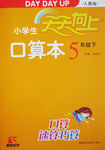题目内容
Sitting is art that isn’t getting passed along. People these days feel as though they have to be doing something. If they are not working, they are jogging, or playing tennis or golf, or taking courses to improve their minds or bodies –or they are parked in front of the TV. Sitting in front of the TV isn’t sitting – it’s watching.
People used to sit a lot. You would walk down the street or drive down the road, and there they would be, out on the doorsteps, sitting. You could go down to the store and sit on the bench out front in the summer or around the fire in the winter. There were sitting benches out in the town square. At the garage, there were straight-backed chairs. There among the oilcans and tries and spare parts, you could kick back and sit.
Houses used to have sitting rooms, where the grown ups would go after Sunday dinner. Mom and Dad, Grandpa and Aunt Ruby would sit and digest (消化) the fried chicken and talk about Aunt Ethel’s illness, and how well the minister did today. Outside, the children would play, and the afternoon would pass by in a comfortable haze (悠闲的氛围).
That sort of thing looks like doing nothing. A recharging battery (正在充电的电池) doesn’t look as if it’s doing anything either. Sitting restores your soul if you want to enjoy a truly full life, don’t just do something –sit there.
小题1:What message does the author try to get through to us ?
小题2:We can learn from the second paragraph that _____________
小题3:The sitting room mentioned in the text used to be a place for______________.
小题4: From the text we know the writer believes_______________
People used to sit a lot. You would walk down the street or drive down the road, and there they would be, out on the doorsteps, sitting. You could go down to the store and sit on the bench out front in the summer or around the fire in the winter. There were sitting benches out in the town square. At the garage, there were straight-backed chairs. There among the oilcans and tries and spare parts, you could kick back and sit.
Houses used to have sitting rooms, where the grown ups would go after Sunday dinner. Mom and Dad, Grandpa and Aunt Ruby would sit and digest (消化) the fried chicken and talk about Aunt Ethel’s illness, and how well the minister did today. Outside, the children would play, and the afternoon would pass by in a comfortable haze (悠闲的氛围).
That sort of thing looks like doing nothing. A recharging battery (正在充电的电池) doesn’t look as if it’s doing anything either. Sitting restores your soul if you want to enjoy a truly full life, don’t just do something –sit there.
小题1:What message does the author try to get through to us ?
| A.People should make better use of their sitting room. |
| B.People should spend less time watching TV. |
| C.People should pass down their good habits. |
| D.People should take things easy for their own good. |
| A.people lived a more restful life in the past |
| B.towns were built to make living convenient |
| C.small town garages had a lot to offer |
| D.people enjoyed going out for a drive |
| A.eating food . | B.watching TV . | C.gathering together. | D.playing with children. |
| A.sitting has a good spiritual effect | B.sitting helps people remember the past |
| C.sitting rooms may have different purposes | D.a sitting room is important for the old. |
小题1:D
小题2:A
小题3:C
小题4:A
略

练习册系列答案
 天天向上口算本系列答案
天天向上口算本系列答案
相关题目
 used 45 hand to take off both of her earrings and then quickly 46 them on the ground.
used 45 hand to take off both of her earrings and then quickly 46 them on the ground. ranger
ranger